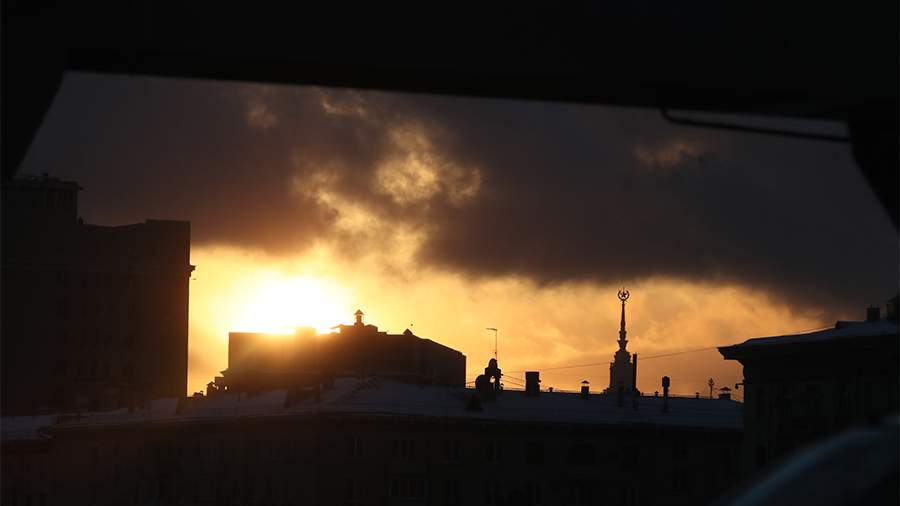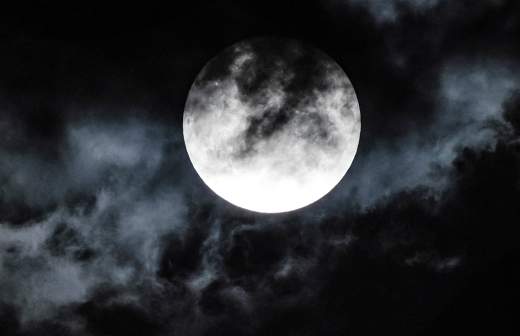Winter Solstice Day December 21: folk traditions, customs and omens

The day of the winter solstice occurs at the end of December each year. On this day the sun reaches its lowest altitude above the horizon and the shortest day of the year occurs, which marks the beginning of astronomical winter. Since ancient times, this time has been considered an important period to take stock and plan for the future. In 2024, the day of the winter solstice falls on December 21. "Izvestia" tells what traditions and omens are associated with this natural phenomenon in the Slavs and other peoples.
When will come the day of the winter solstice in 2024
The solstice comes twice a year - in winter and summer. This happens because of the tilt of the axis of rotation of the Earth. The Northern Hemisphere is tilted toward the Sun during one half of the year, the Southern Hemisphere during the other. Thus, on one part of the world comes astronomical summer, and on the other - astronomical winter, which lasts until the onset of the vernal equinox - in 2025 it falls on March 20.
At the same time during the day the position of the Sun above the horizon practically does not change. It seems to freeze in the zenith and stands motionless, thanks to what the phenomenon and received its name. This year the winter solstice will occur on Saturday, December 21, at 12:20 Moscow time.
The duration of the daylight hours will be only seven hours. Accordingly, the night will last 17 hours and will be the longest of the year.
How celebrated the day of the winter solstice in Russia
The Slavs associated the natural phenomenon with the birth of the god of the winter sun Kolyada. In honor of the holiday, our ancestors installed a wheel with eight painted spokes, symbolizing the sun, and lit a candle or torch inside. They also built bonfires around which they led round dances, and in ovens they extinguished the old fire and kindled a new one - as a symbol of nature's renewal.
In houses it was customary to bake pies in the shape of the sun, to gather around a large table and ask the gods for a good harvest in the coming year. Young boys and girls went around the courtyards and caroled: they sang carols, promising the owners of the house prosperity and prosperity, and in return received sweets.
Caroling was not only in Russia. Similar rituals were also in the Western Slavs - the ancestors of Poles, Czechs and Slovaks. Later, with the advent of Christianity, carols became a Christmas tradition. Solstice was more often called Spiridon-Sunrise, because at this time the Orthodox Church remembered St. Spiridon of Trimiphunt.
In ancient Rome, the day of the winter solstice was the day of the harvest festival - Saturnalia. It was established in honor of the god Saturn, who was considered the patron saint of farmers. The people organized large feasts, sometimes lasting several days. In India, the holiday was called Sankranti and was dedicated to the deity Surya, symbolizing sunlight and warmth.
The Scandinavians honored a deity named Yule, whose origin goes back to the words "rotate", "spin", referring to the turning of the annual cycle. An important part of the date was the sacrifice to the gods and the burning of the Yule log. Over time, this tradition was replaced by the making of a dessert known as a Christmas log.
What you can and cannot do on the winter solstice on December 21
Since ancient times it was believed that before the day of the winter solstice it is necessary to thoroughly clean the house, throwing out all the old and unnecessary things. And for the next year to be better than the previous one, on a piece of paper you should write all the bad things that happened during the year and burn them in the fire. Our ancestors believed that with the help of this rite in life will make room for something new and bright.
Another way is to gather all the bad in a fist and "throw" into the water, and then drain it, also letting go of all negative thoughts.
In addition, according to beliefs, spiritual and physical cleansing contribute to the bath or bath with healing herbs. The same procedure will help to relieve fatigue and get rid of depressed mood, which can appear also due to lack of light in winter.
Also on this day you can not be sad, remember the difficult moments of the past and spend time alone, because in this way you can spend the whole next year.
Omen on the day of the winter solstice
An important place in the day of the winter solstice was occupied by weather omens. People used them to determine what the current winter would be like. If the day was sunny and clear, it means that winter will be frosty and snowy. If it was cloudy outside, then, on the contrary, the weather should be mild and warm.
The flight of birds was also used to judge about weather changes. If they flew towards the south, cold weather would soon come. And if towards the north, there will still be warm days until the end of the year.
Earlier "Izvestia" told about the day of the autumnal equinox and how it was celebrated in the old days.
Переведено сервисом «Яндекс Переводчик»


